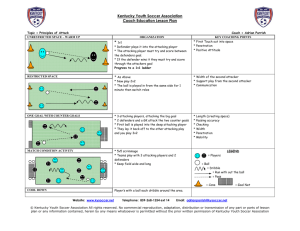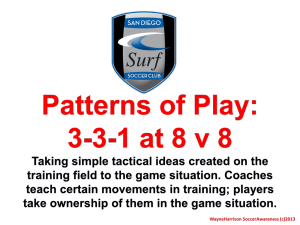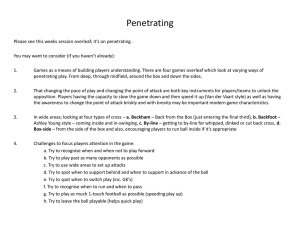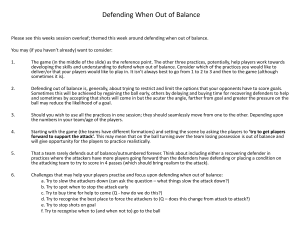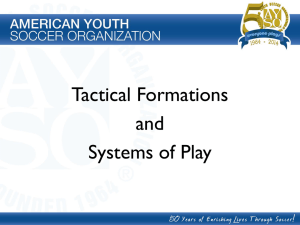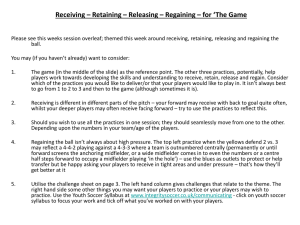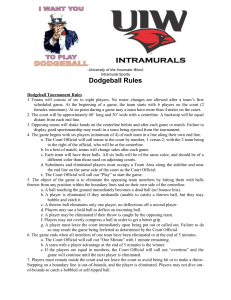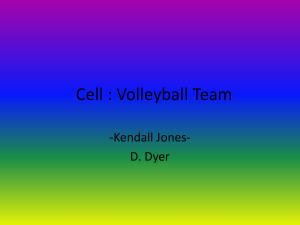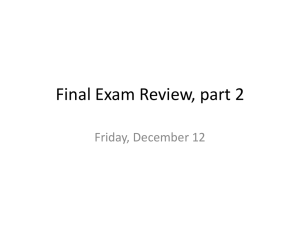Counter Attacking - Integrity Soccer
advertisement
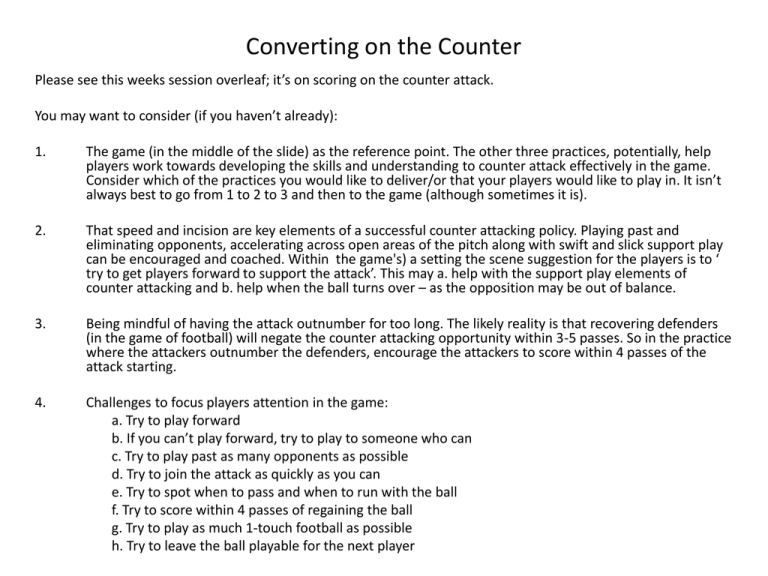
Converting on the Counter Please see this weeks session overleaf; it’s on scoring on the counter attack. You may want to consider (if you haven’t already): 1. The game (in the middle of the slide) as the reference point. The other three practices, potentially, help players work towards developing the skills and understanding to counter attack effectively in the game. Consider which of the practices you would like to deliver/or that your players would like to play in. It isn’t always best to go from 1 to 2 to 3 and then to the game (although sometimes it is). 2. That speed and incision are key elements of a successful counter attacking policy. Playing past and eliminating opponents, accelerating across open areas of the pitch along with swift and slick support play can be encouraged and coached. Within the game's) a setting the scene suggestion for the players is to ‘ try to get players forward to support the attack’. This may a. help with the support play elements of counter attacking and b. help when the ball turns over – as the opposition may be out of balance. 3. Being mindful of having the attack outnumber for too long. The likely reality is that recovering defenders (in the game of football) will negate the counter attacking opportunity within 3-5 passes. So in the practice where the attackers outnumber the defenders, encourage the attackers to score within 4 passes of the attack starting. 4. Challenges to focus players attention in the game: a. Try to play forward b. If you can’t play forward, try to play to someone who can c. Try to play past as many opponents as possible d. Try to join the attack as quickly as you can e. Try to spot when to pass and when to run with the ball f. Try to score within 4 passes of regaining the ball g. Try to play as much 1-touch football as possible h. Try to leave the ball playable for the next player Converting on the Counter 2 – Breaking 2 vs. 2 + Gk in each half. One player of each team on halfway line. 2. Yellow GK plays into midfield area where yellow player drifts off line to collect ball and drive into attacking half – try to score within 3 passes 3. If blue defenders win the ball they play to their blue midfield player who attacks in the same way. 4. If yellows shoot/score; GK plays out to blue midfield to start attack in the opposition direction. 1 – Breaking & Recovering Blue goes first – runs ball towards goal and shoots to score 2. At the point that the blue shoots the ball – yellow from other group starts run towards other goal – blue sprints back to try to prevent shot (recovery) 3. 2nd blue then runs ball out as yellow shoots and the yellow recovers themselves. One ‘go’ for each player is a shot and a recovery run. 4. After recovery run, players should collect the ball that the player they were recovering to stop shot and join their team 5. Whilst this appears to have a queuing element, once the practice is running there is a continuous flow of attacking and recovering. Game 1. Free flowing 6 vs. 6 – try to get midfield players forward to join the attack 2. Utilise challenges from throughout session (as per session description) 3 1. 1. 3 – Joining In Attack 1. 1 ball – blues vs. yellows 2. Play 6 vs. 6. 3. Players can move from third to third when their team is in possession only. Upon turn over they seek to recover back. 4. This will create imbalances and counter attacking opportunities.
